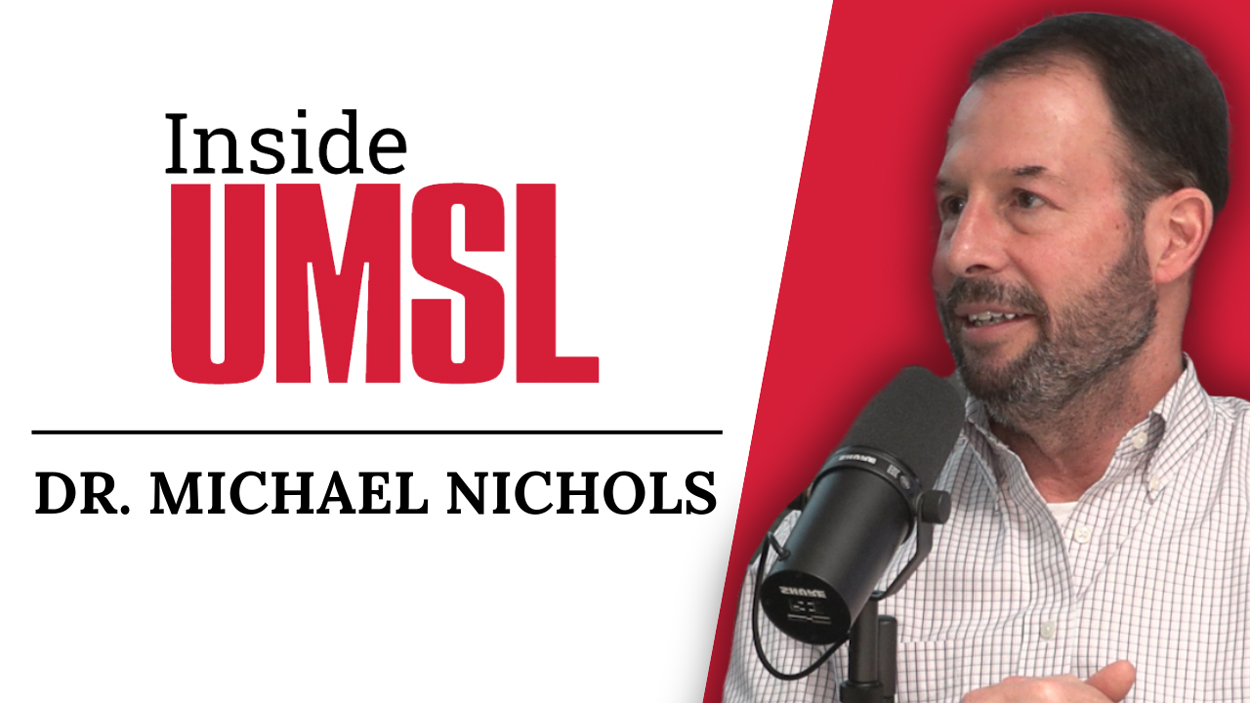
Michael Nichols, a professor of chemistry and biochemistry, is the latest guest on the Inside UMSL podcast.
Michael Nichols’ work with Alzheimer’s disease goes back more than 20 years.
After earning his PhD at Purdue University, Nichols became interested in neurodegenerative diseases during a postdoctoral fellowship at the Mayo Clinic in Jacksonville, Florida. In that role, he began studying proteins linked to inflammation in the brain that occurs as part of Alzheimer’s disease.
Nichols, now a professor of chemistry and biochemistry at the University of Missouri–St. Louis, has continued that work since arriving at the university in 2004. On the latest episode of the Inside UMSL podcast, Nichols joined host Nate Fleming to discuss his lab’s research, which aims to understand what causes the neurodegenerative disorder and how those insights might be used to develop a therapeutic to prevent the disease in the future.
According to the Alzheimer’s Association, nearly 7 million people in the United States are living with the disease. However, despite its prevalence, the scientific community is still working to identify a precise cause for the disease as well as treatments to significantly mitigate its impact. Nichols and the UMSL students who work in his lab are part of a network of researchers tackling those tough questions.
“There are two proteins that accumulate in the brains of AD patients,” Nichols explained. “The first one that starts is called the amyloid-β protein. The second one that is triggered by the first one is the tau protein. They both form these plaques and tangles in the brain.”
Nichols is especially focused on the amyloid-β protein and the mechanisms through which it activates a group of three proteins, known as NLRP3 inflammasome, to cause inflammation inside immune cells in the brain.
While progress can seem slow at times, Nichols is cautiously optimistic about new therapeutics that target the protein his lab has been investigating.
“In the last two to three years, there have been some monoclonal antibodies that have been approved by the FDA, and at least one of those is being administered to patients,” Nichols said. “These antibodies are the first things that actually attack the disease process. Those antibodies are directed toward that amyloid-β protein that my lab studies. So, they will slow the cognitive decline. It’s not perfect right now, but it’s the first thing that actually is treating the progression of the disease.”
A joint initiative of the Office of Admissions and University Marketing and Communications, the Inside UMSL podcast launched earlier this year and features interviews covering innovative teaching, groundbreaking research, exciting extracurricular opportunities, athletics and other campus initiatives.
New episodes of the podcast are available monthly on the Inside UMSL podcast page or wherever you listen to podcasts.














